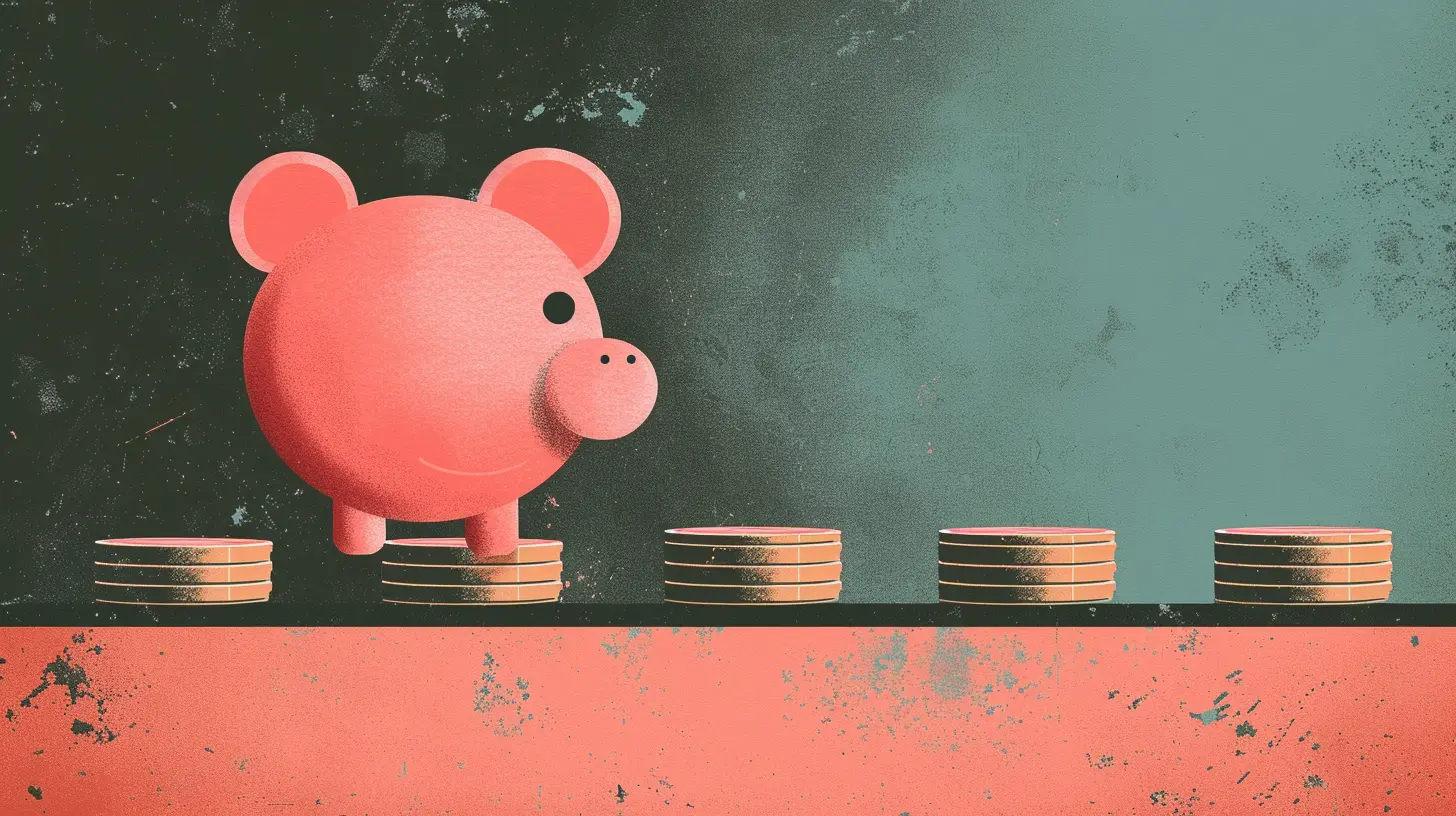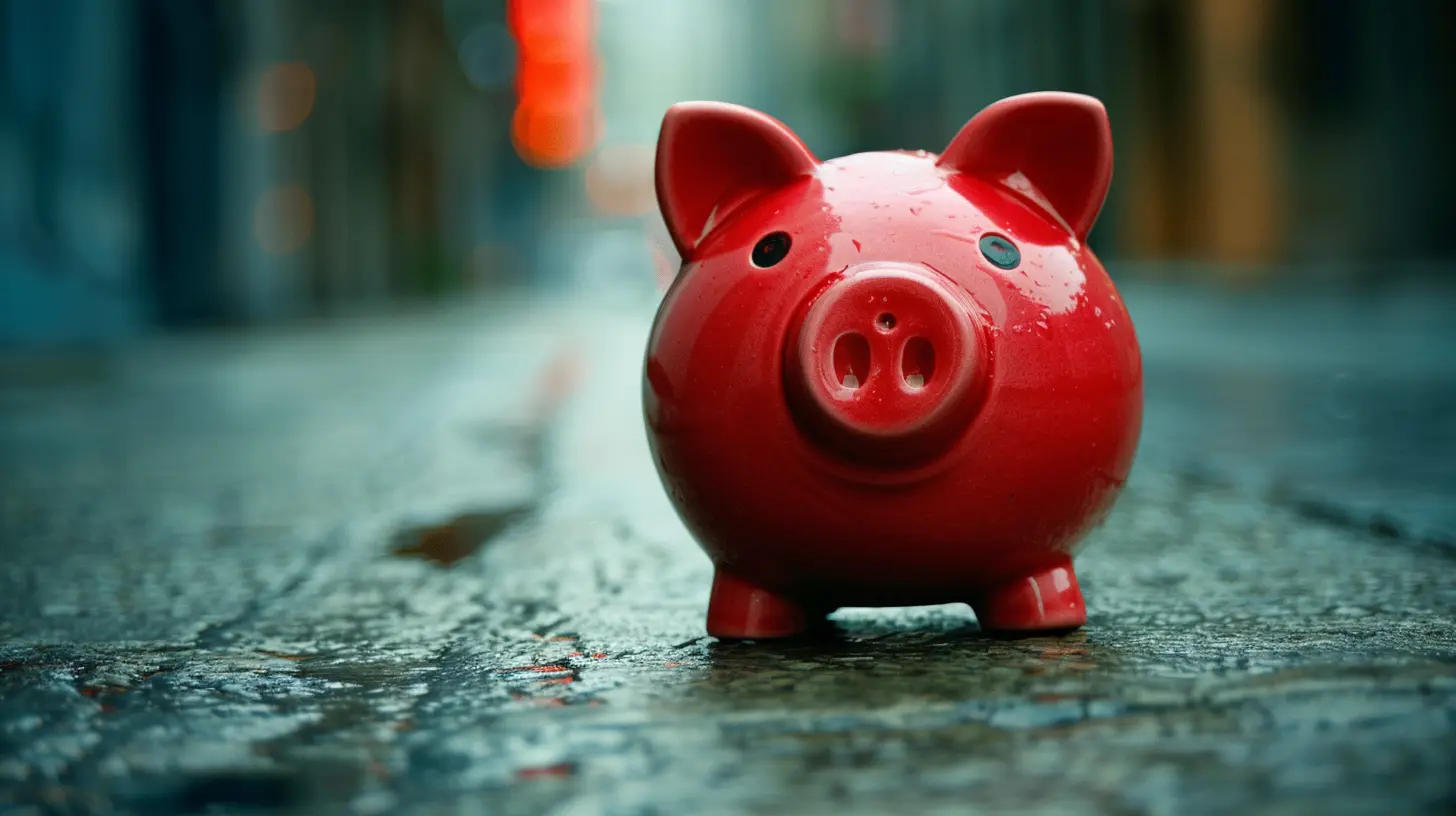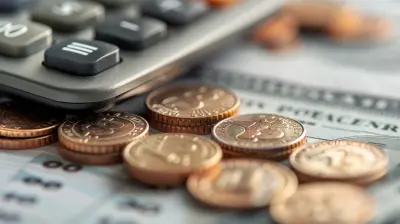Emergency Savings vs. Debt Repayment: Striking the Balance
26 November 2024
Managing your personal finances can feel like walking a tightrope—lean too much toward one side, and you risk taking a tumble. One of the most common dilemmas for individuals today is deciding whether to prioritize building emergency savings or repaying debt. It’s a tough call, right? Both goals are important, but how do you strike the perfect balance?
Fear not, because in this article, we’re diving deep into the nitty-gritty of emergency savings and debt repayment. By the end, you’ll know how to take control of your financial juggling act, step confidently on the tightrope, and make choices that truly work for you. 
Why Emergency Savings Matter
Picture this: life throws you a curveball—a sudden car breakdown, an unexpected medical bill, or even a job loss. What do you do? This is where an emergency fund comes to the rescue, acting like a safety net for those unplanned expenses that can derail your finances.Emergency savings build financial security, keeping you from having to rely on credit cards or loans every time life decides to surprise you. It’s not just a “nice-to-have”; it’s a lifeline.
According to financial experts, having three to six months of living expenses set aside is ideal for most people. If that sounds like a lot, don’t panic. Even a starter fund of $500 to $1,000 can make a huge difference.
> Pro Tip: Start small but stay consistent. Automate your savings by setting up a recurring transfer to your emergency fund every month, no matter how small the amount. 
Why Paying Off Debt Deserves Attention
Now, let’s flip the coin. Debt can feel like a weight tied to your ankle, dragging you down as you try to move forward financially. Whether it’s credit card debt, student loans, or a car payment, carrying debt impacts your mental health, financial flexibility, and net worth.Why is paying off debt important? Because it’s costing you—literally. High-interest debt, such as those from credit cards, can snowball out of control if left unchecked. When you’re busy paying interest, it’s like throwing money into a black hole—it’s gone, and you’ll never see it again.
The sooner you tackle your debt, the more money you’ll free up in the future to put toward savings, investments, or even that dream vacation you’ve been eyeing. 
The Great Debate: Emergency Savings vs. Debt Repayment
Okay, so here’s the million-dollar question: Should you save for emergencies or focus on paying off debt? The short answer? It depends.Sounds vague? Let me explain. Your financial priorities depend on factors like the type of debt you have, your interest rates, and your current financial situation. Here’s a breakdown to help you weigh the pros and cons.
1. High-Interest Debt = Priority
If you’re dealing with high-interest debt (think credit cards, payday loans, or anything else with an interest rate above 10%), you’ll want to focus on paying it off ASAP. Why? Because high-interest debt grows faster than mold in a forgotten lunchbox.With interest accumulating quickly, your debt can spiral out of control, costing you way more in the long run. In this case, minimum emergency savings (around $500–$1,000) should suffice while you throw the majority of your financial firepower at killing that high-interest debt.
> Quick Analogy: Imagine you’re trying to fill a bucket of water (your emergency savings), but there’s a massive hole at the bottom (your high-interest debt). Fix the hole first before focusing on filling the bucket.
2. Low-Interest Debt? Build Savings First
On the other hand, if your debt carries a lower interest rate (like a student loan at 5% or a 0% APR promotional credit card), it’s not as urgent to pay it off right away. In this scenario, you can focus on building your emergency savings to a more comfortable level while continuing to make your minimum debt payments.Why? Because life happens, and having cash on hand for emergencies can prevent you from digging yourself into an even deeper financial hole.
3. Do Both: The 50/50 Approach
Sometimes, you don’t have to choose—split your resources and tackle both goals at the same time. This is especially helpful if you’re dealing with moderate-interest debt. You can allocate 50% of your disposable income to savings and 50% to debt repayment.This way, you’re gradually building a safety net while simultaneously making progress on reducing your debt. It’s not the fastest route to financial freedom, but it’s a balanced one. 
Steps to Strike the Right Balance
Now that we’ve outlined the general principles, here’s a step-by-step guide you can follow to figure out what works best for your situation:Step 1: Assess Your Situation
Take an honest look at your finances:- How much do you owe, and what are the interest rates?
- Do you have any emergency savings at all?
- Are you living paycheck to paycheck?
Understanding your starting point will help you identify your priorities.
Step 2: Build a Starter Emergency Fund
If you don’t have any savings, your first goal should be to create a small emergency fund of $500 to $1,000. This gives you a cushion for minor emergencies while you focus on other goals.Step 3: Attack High-Interest Debt
Once your starter fund is in place, shift your focus to high-interest debt. Use the debt snowball method (paying off the smallest balance first) or the debt avalanche method (tackling the highest-interest debt first), whichever keeps you motivated.Step 4: Grow Your Emergency Fund
When your high-interest debt is under control, you can return to building your emergency savings to three to six months of living expenses. This might take time, but it’s worth the effort.Step 5: Pay Off Remaining Debt
Finally, focus on paying off your remaining low-interest debt. By this point, you’ll have built financial security and can aggressively tackle your remaining balances.Balancing Mental Health and Financial Health
Here’s something people don’t talk about enough: Your financial decisions have a huge impact on your mental health. Debt can be stressful, and so can the fear of not having a safety net.The key is to find a balance that doesn’t leave you lying awake at night. If aggressively paying off debt leaves you feeling vulnerable, put more into savings for peace of mind. On the flip side, if your debt is crushing you, prioritize paying it down while maintaining a bare-bones emergency fund.
Remember, personal finance is personal. What works for someone else might not work for you—and that’s okay!
The Role of Budgeting in Striking the Balance
You know what’s better than playing the guessing game with your finances? Budgeting. A budget puts you in control and helps you decide how much money you can realistically allocate to both savings and debt repayment.Start with the 50/30/20 rule as a baseline:
- 50% of your income goes to needs (like rent and groceries).
- 30% goes to wants (like dining out or Netflix).
- 20% goes to financial goals (saving and paying off debt).
Feel free to tweak the percentages based on your priorities. The important thing is to ensure every dollar has a job.
Final Thoughts: It’s About Progress, Not Perfection
At the end of the day, the debate between emergency savings and debt repayment doesn’t have a one-size-fits-all answer. It’s all about finding what works for YOU.The key is to take action—whether it’s saving $10 a week or paying an extra $20 toward your credit card bill. Each step brings you closer to financial freedom and peace of mind.
So, don’t stress about doing it perfectly. Just focus on making progress. Before you know it, that tightrope won’t seem so scary after all.
all images in this post were generated using AI tools
Category:
Debt ManagementAuthor:

Angelica Montgomery
Discussion
rate this article
17 comments
Barbara McIntire
Why save for emergencies when debt is so fashionable?
March 6, 2025 at 1:24 PM

Angelica Montgomery
While debt may seem fashionable, having emergency savings is crucial for financial security. It provides a safety net, reducing reliance on high-interest debt when unforeseen expenses arise. Balancing both priorities leads to long-term stability.
Wilder Ramirez
Saving for emergencies? Great! But debt won't pay itself—balance is key, folks!
February 2, 2025 at 5:50 AM

Angelica Montgomery
Absolutely! Finding the right balance between saving for emergencies and managing debt is crucial for financial health. Both are important for long-term stability.
Winona Wilkerson
Great article! Finding the right balance between emergency savings and debt repayment is crucial for financial health. Prioritizing both can reduce stress and build resilience. Remember, taking small steps towards each goal can lead to significant long-term benefits! Keep it up!
January 26, 2025 at 12:01 PM

Angelica Montgomery
Thank you for your thoughtful insights! I completely agree—finding that balance is key to achieving financial well-being.
Eleanor Alvarez
Balancing emergency savings and debt repayment is like juggling flaming torches while riding a unicycle—tricky but essential! Build that safety net while dodging debt like it’s a high school ex. Just remember: financial stability doesn’t come with a manual, but it does come with a sense of humor!
January 21, 2025 at 2:01 PM

Angelica Montgomery
Absolutely! Finding that balance is crucial, and a little humor goes a long way in navigating the financial tightrope.
Jett Ortiz
Striking the balance between emergency savings and debt repayment is critical. Prioritizing high-interest debt can save money in the long run, but maintaining a safety net prevents financial setbacks. A strategic approach—allocating a percentage to both—ensures security while steadily reducing debt, leading to long-term financial health.
January 17, 2025 at 6:00 AM

Angelica Montgomery
Absolutely! Balancing emergency savings with debt repayment is essential for financial stability. Prioritizing high-interest debt while ensuring a safety net creates a strategic approach that promotes long-term health.
Karly Lynch
Balancing emergency savings and debt repayment is crucial; prioritize building a safety net while simultaneously addressing high-interest debts to ensure long-term financial stability.
January 11, 2025 at 12:49 PM

Angelica Montgomery
Thank you for your insightful comment! Striking the right balance between emergency savings and debt repayment is indeed key for achieving lasting financial stability.
Astoria Green
Balancing emergency savings and debt repayment is crucial; prioritize high-interest debt while gradually building a safety net.
January 7, 2025 at 7:34 PM

Angelica Montgomery
Thank you for your insightful comment! Balancing emergency savings and debt repayment is indeed essential, and prioritizing high-interest debt while building a safety net is a smart approach.
Remi Stevens
This article beautifully highlights the delicate balance between saving for emergencies and tackling debt. Prioritizing both is essential for long-term financial stability. Thank you for sharing such valuable insights!
January 4, 2025 at 5:32 AM

Angelica Montgomery
Thank you for your thoughtful comment! I'm glad you found the insights valuable. Striking that balance is indeed key to financial health!
Joel McCaw
Finding the right balance between emergency savings and debt repayment is crucial for financial stability and long-term security. Prioritize wisely!
December 30, 2024 at 1:23 PM

Angelica Montgomery
Thank you for your insightful comment! Balancing emergency savings and debt repayment is indeed key to achieving financial security. Prioritizing based on personal circumstances can help create a solid foundation.
Nicholas Powell
This article presents a crucial perspective on managing finances. Striking a balance between emergency savings and debt repayment is essential for achieving long-term stability. I appreciate the insights shared here, as they encourage readers to assess their personal situations thoughtfully. It’s a reminder that both priorities can coexist harmoniously. Thank you!
December 27, 2024 at 8:38 PM

Angelica Montgomery
Thank you for your thoughtful comment! I’m glad you found the insights helpful in balancing emergency savings and debt repayment. Striking that harmony is indeed key to long-term financial stability.
Ryder McDowell
Save first, then tackle that debt!
December 25, 2024 at 4:26 AM

Angelica Montgomery
Absolutely! Building an emergency fund provides a safety net that can prevent further debt in case of unexpected expenses. It's essential to balance both saving and repayment.
Signe Wilcox
Great tips! Balancing both is crucial!
December 20, 2024 at 4:30 AM

Angelica Montgomery
Thank you! Finding that balance is key to financial stability.
Sera Riley
Great article! Finding the balance between emergency savings and debt repayment is key to financial wellness. Cheers to smart money moves!
December 17, 2024 at 12:13 PM

Angelica Montgomery
Thank you! I'm glad you found it valuable. Striking that balance is indeed crucial for financial wellness!
Farrah McKinley
Great insights! Finding the right balance between saving and repaying debt is crucial for financial health.
December 13, 2024 at 3:30 AM

Angelica Montgomery
Thank you! Striking that balance is essential for a strong financial foundation.
Beatrice Fletcher
Save smartly, pay wisely—balance is key!
December 4, 2024 at 9:46 PM

Angelica Montgomery
Absolutely! Finding the right balance between emergency savings and debt repayment is essential for financial stability and peace of mind.
Ximena McNulty
Balance is key! Save a little, pay a little!
December 1, 2024 at 6:07 AM

Angelica Montgomery
Absolutely! Finding the right balance between saving for emergencies and paying down debt is crucial for financial stability.
Nathan Hahn
Balancing emergency savings and debt repayment is crucial. Prioritizing a safety net while managing debt can provide financial stability, reduce stress, and prepare for unexpected expenses.
November 29, 2024 at 9:14 PM

Angelica Montgomery
Thank you for your insightful comment! Striking a balance between emergency savings and debt repayment is indeed essential for achieving financial stability and peace of mind.
MORE POSTS

Teaching Children About Money Through Family Budgeting

Print-on-Demand: An Art Lover’s Side Hustle Opportunity

The Role of Annuities in Employer-Sponsored Retirement Plans

How Flexible Family Budgets Can Help Deal With Unexpected Expenses

The Truth About Payday Loans and How to Avoid Them

The Benefits of Using Budgeting Apps and Tools

How to Choose the Right Annuity for Your Financial Goals

Navigating Market Volatility with Mutual Fund Investments

Mastering Cash Flow Management to Meet Your Financial Objectives

The Effect of Compound Interest on Long-Term Investments

The Best Apps for Managing Your Family Budget